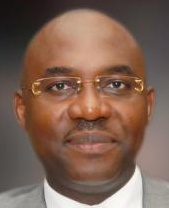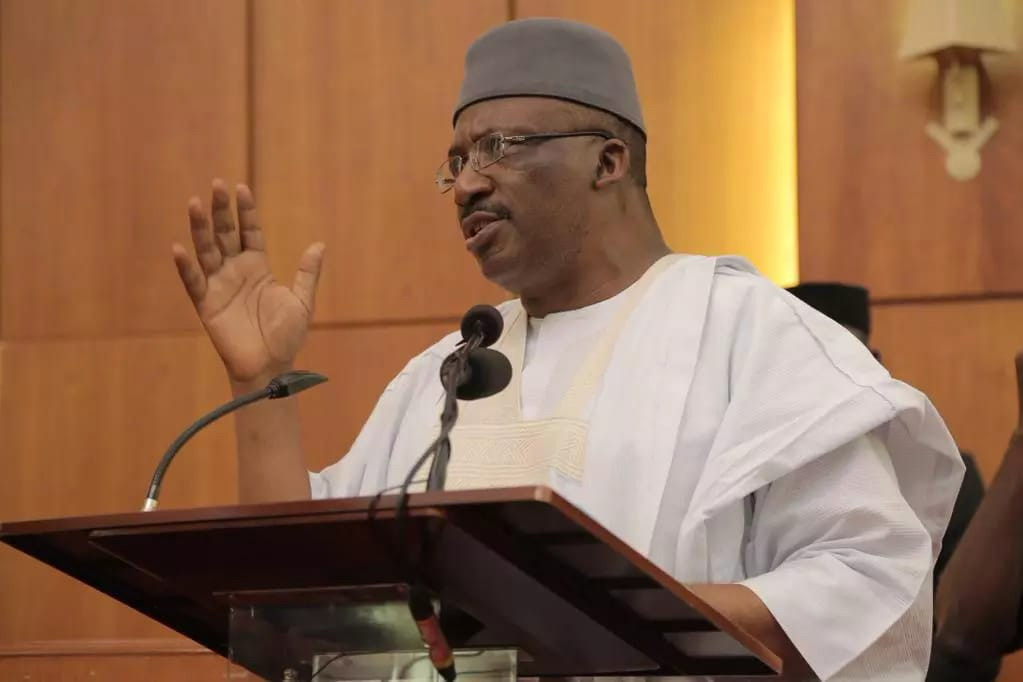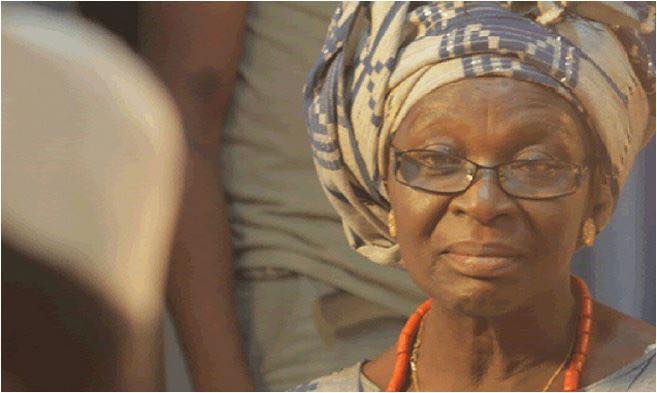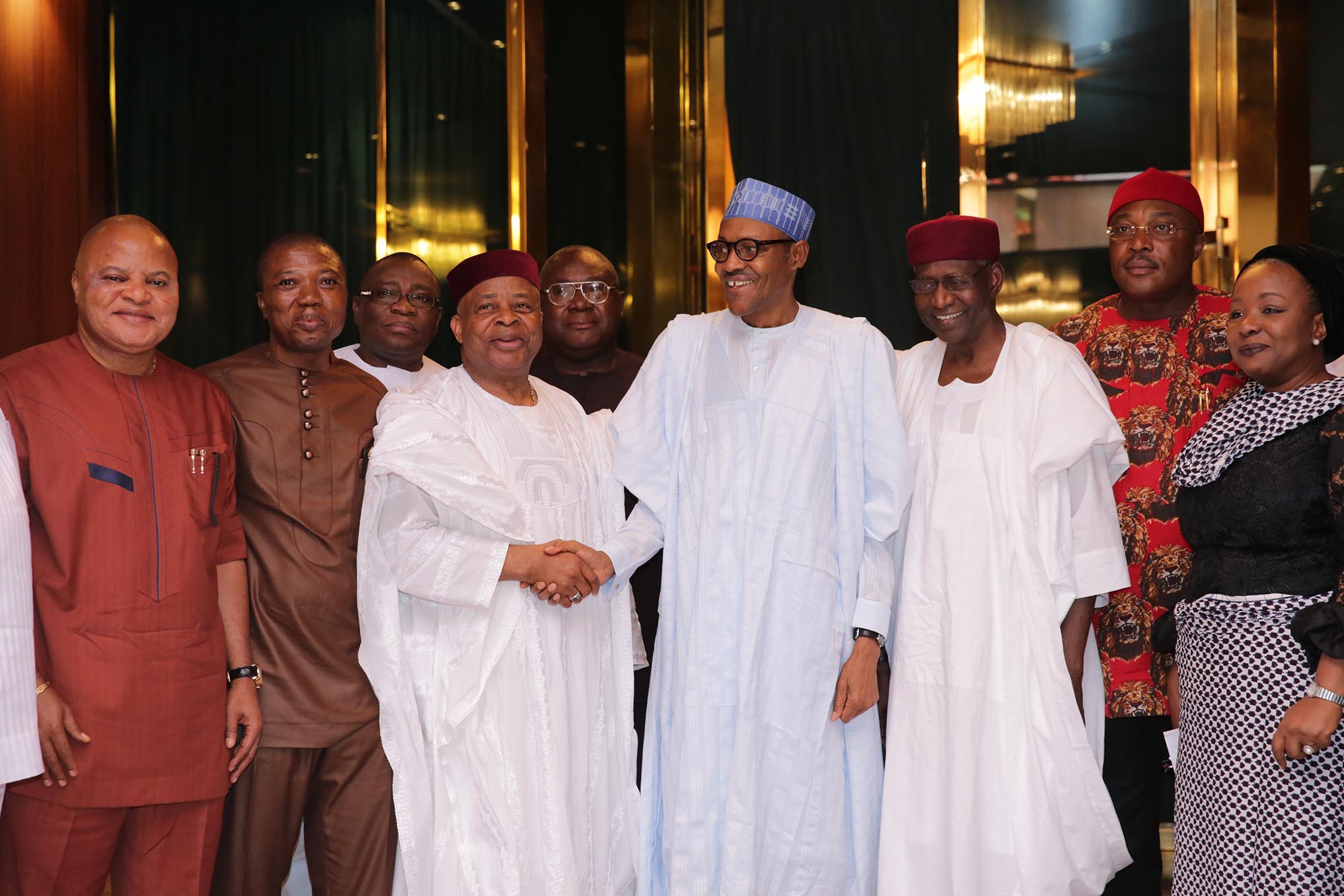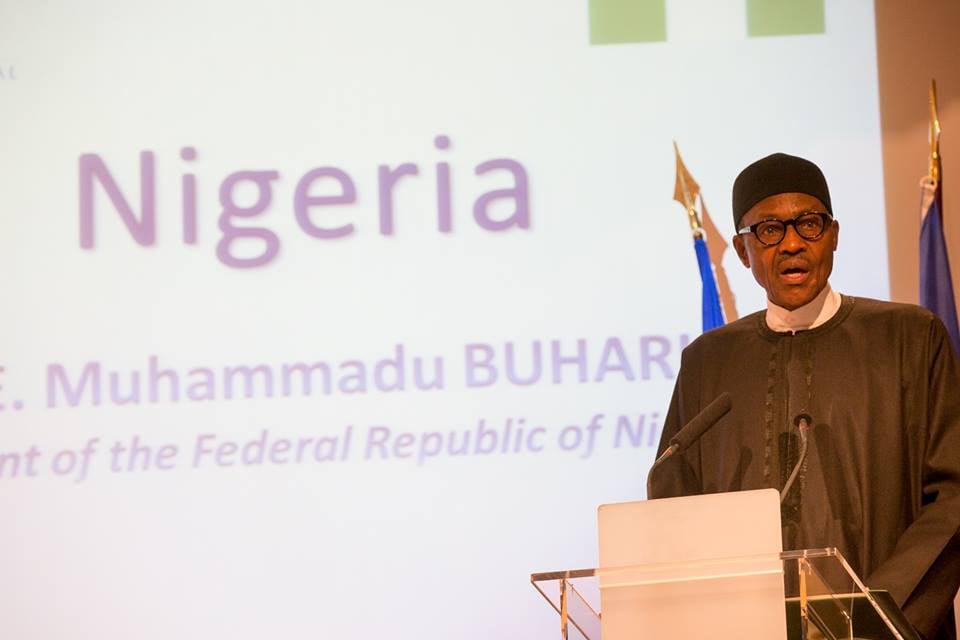Who or what misled the Federal Government into announcing a wrong date for the Sallah holiday that just ended?
A rather disturbing account circulated midweek. It was whispered that the monumental embarrassment could have been saved had there not been a chasm between the Buhari people and the Sokoto sultanate. The tradition was that the Interior Ministry interacted with the Sultan as the head of the nation’s Muslim community before public holiday(s) was declared in the circumstance.
As the story goes, as has become the fashion in Abuja nowadays, no such consultation happened last week before the bureaucrats at the Interior ministry were said to have exercised their discretion by unilaterally declaring July 5 and 6 as holiday for Eid-el-Fitr. And when the much-awaited moon had still not been sighted by Monday midnight, it became crystal clear the gamble had failed. Much to the nation’s discomfiture, a “supplementary day” had to be added Tuesday, bringing the new tally to three days.
Trust ingenious Nigerians, the controversy was parlayed to an opportunity to invent an assortment of jokes about the “missing moon” in the social media. The most hilarious perhaps being either the allusion to INEC characteristically declaring that “The sighting of the moon was inconclusive” or the usually conniving Abuja High Court ruling that “The sighting of the moon has been adjourned to tomorrow” or the phantom report categorically quoting the EFCC as saying that “Those responsible for the missing moon will soon be apprehended and charged accordingly. We have evidence.”
Advertisement
To be sure, one is not in a position to confirm the veracity of the aforementioned conspiracy theory yet. But given the creeping culture of silence in Abuja today, the inquisitive are condemned to continue to sift through the grapevine in the days ahead in case they are still desirous of reaching the bottom of the matter.
Nonetheless, the concomitant shame on the nation is better appreciated given that Saudi Arabia, the acclaimed spiritual pathfinder and indeed the custodian of the holiest sites of the Islamic faith, did not declare Tuesday a national holiday.
The scandal was compounded by what seemed a poor lexical facility. The wording of the statement announcing the “supplementary holiday” was most inelegant, further casting Abuja in sordid lights. It may indeed sound diffident for the Permanent Secretary who signed the circular on behalf of the Interior Minister, Abdulrahman Dambazau (pictured), to state that the extension became necessary after “the directive by the President General of the Nigerian Supreme Council for Islamic Affairs, Alhaji Sa’ad Abubakar III, the Sultan of Sokoto, to the effect that the Ramadan fast continues today (Tuesday) as a result of the non-sighting of the moon.”
Advertisement
But grave damage is inadvertently done to the mystique and indeed institutional integrity of the Federal Government to so rationalize. At least, nowhere in the current 1999 constitution is it indicated that the federation is now a theocracy.
Ideally, someone ought to be sanctioned for such egregious error of judgement in Abuja.
In material terms, the cost of a day off duty to the national economy is incalculable. To say nothing about the inconvenience to those least prepared for it. For instance, twice within a week, schools earlier scheduled to shut down had to hurriedly adjust their calendar. It is doubly tragic considering that the nation is officially now in recession, having chalked up negative growth for two consecutive quarters.
But no one in Abuja and elsewhere seems sufficiently perturbed or thoughtful enough to link the craze for public holiday to the growing decline in national productivity as wage is mostly earned in the public sector without having to even break a single sweat in the indulgent assurance that the proverbial cake will always be available on the table to share whenever the Finance minister and her counterparts in the 36 federating states regroup in Abuja at the third week of every month insofar oil money continues to flow in.
Advertisement
It is no coincidence therefore that relatively prosperous nations have lesser national holidays while those with beggarly GDP tend to be the ones obsessed with vacations. In the United States, for instance, the total number of national holidays scheduled for 2016 is eleven days. Ditto France. Singapore will tolerate 13 days. Whereas South Africa has 15 days, Russia, Ghana and Nigeria tally at 16.
But the 16 officially announced by Nigeria does not cover days lost to the whimsicality of labour strikes often over the most jejune of grievances. Nor the man-hour lost at gas stations when workers queue up for petrol when they should be at their desks. When all of these disruptions are consolidated, we are actually looking at a significant portion of the calendar year mindlessly incinerated.
Of course, extended holiday will be bad news for those whose daily survival depends on their toil for the day. Or the hard-nosed employer who views every moment of the downtime as lost opportunity to create more wealth. And all those whose peculiar vocations simply make no room for the proverbial lotus-eating. Like the journalist who, willy-nilly, has to write the first draft of history.
Expectedly, only the slothful ones would have rejoiced at the addition of Thursday as holiday. Among them must have been salaried public servants whose next pay cheque is already assured on the guarantied receipt of oil money. In fact, to such category of wage-earners, the remaining working day of the week (Friday) would simply be taken as gratis. Anyone in doubt should conduct a roll-call at most public offices today; attendance will certainly be very low.
Advertisement
But Abuja is not alone is freely doling out holiday; it fits into what seems a growing pattern across the federation. Stretched to the limits of their creativity in the season of recession, it would appear more and more governments think the only way to comfort or pacify the people is give them more holiday.
In Benue, for instance, every Friday was recently declared holiday not only to officially enable the civil servants owed arrears of salaries farm compulsorily as part of the state’s ingenious hunger management strategy, but also as unofficial concession to help them minimize the costs of transportation.
Advertisement
As you read this, workers of Abia State should still be savoring a bouquet of additional holiday unilaterally announced by its embattled “governor” after having the gubernatorial rug pulled suddenly from under his feet last week by an Abuja court. Following the initial declaration of Tuesday and Wednesday as holiday by the Federal Government, Okezie Ikpeazu added Monday and Thursday for Abia in what was clearly seen as a calculated attempt to shut down government machinery and forestall the installation of his rival, Uche Ogah, as new governor as directed by the court pending the determination of his own appeal.
Holiday-obsessed Ikpeazu earlier declared June 30 as work-free in Abia in honour of Ojo Maduekwe, an illustrious citizen who recently passed on. Similarly, when in February the Supreme Court had affirmed his victory, Ikpeazu did not think twice before pronouncing the 15th day of that month holiday.
Advertisement
As the crusader-in-chief, President Buhari ought to realize that the promise of change should not be about anti-corruption alone, but the work ethic as well. It is on record that twice within his first year in office, Buhari himself had gone on official leave – worst of all – abroad. Now, everyone seems in a hurry to break his record.
Maduekwe: The last bicycle ride
If the ongoing dirge for Ojo Maduekwe sounds more audible outside his ethnic origin it is partly because his politics transcended the common-place. An intellectual he undoubtedly was. But his resolve to intellectualize politics, viewing things through the pragmatist lens, often pitted him not just at odds with the rabble in his native land but those who had accepted the customs that every thing must be conducted in a certain way.
Advertisement
At a time it was politically correct at home to demand “Igbo presidency or nothing” fifteen or so years ago, Abia-born Maduekwe, who preferred being addressed simply as Ojo, stoutly dismissed such as “idiotic”. As a minister in the Obasanjo administration in its first term, he certainly could see what many of his kinsmen could not. With OBJ’s eyes already fixed on second term, he simply could not understand why some people chose to daydream.
Typically, Ojo started by taking the term “Igbo president” itself apart grammatically. There could only be a president of Igbo extraction, he corrected. Rather than adopt incendiary language in their agitation, he urged his kinsmen to engage more persuasively.
The furore that triggered was equalled perhaps only by his espousal later as Transport minister that urban-dwellers should bike more than riding automobiles. As usual, the uproar that generated hardly left him any space in the airwaves to expatiate that the option was not only eco-friendly but conducive to healthy lifestyle.
Too bad, on a ride to work one of those hostile days, his bicycle slipped and Ojo came crashing down on the busy Abuja highway. That singular incident provided more ammunition for critics who had long dismissed his quixotic proposal as nothing more than a suicide mission.
Undaunted, he continued his biking to the weekly federal executive council meeting. A practice he continued for the rest of his tenure.
Later as Foreign minister he propagated the idea of citizen diplomacy. Such was the courage of conviction and resourcefulness Ojo brought to any thing or cause he believed in.
No less intense was his sense of loyalty and consistency at a time political promiscuity became glamorized. At least, he remained faithful to his party, PDP, from the beginning to his last breath. Even when it meant enduring public ridicule. A good example was sometime in 2004 or so in faraway Ghana. A young man was ingenious enough to announce he was launching a book on OBJ and calculating enough to send invitations to the high and mighty in Nigeria.
On the presentation day, Accra literally shook with the galaxy of Nigerian VIPs who flew in. Madueke was listed as the book reviewer. This writer happened to be present at the event in his capacity as a journalist. It was vintage Ojo on parade once ushered to the lectern. But our shock was when copies of the said book were finally made available. Its garish cover and miserable contents were simply disproportionate to the scholarly arsenal deployed mightily for the one hour Maduekwe pontificated on OBJ’s “muscular diplomacy” and all that.
When finally this writer met him and expressed shock at the great length he went to dignify with big grammar what could at best be described as a piece of graffiti, Maduekwe was a bit apologetic. He himself was seemingly scammed. Apparently, all he was fed was a synopsis of the book. Being an OBJ insider, he told this writer that he felt it was safe enough to speak to the topic, without necessarily poring through it. Such was Maduekwe’s loyalty to his party and then leader.
An intellectual romantic, Maduekwe cherished the company of writers and ideas people to spar on any issue under the sun. His humility and simplicity were numbing. On a personal note, he had taken interest in my writings and as a minister would, from time to time, call to join issues. Even when you attacked him in any article, he never showed or nursed any malice. We could argue for hours on phone. Be sure the conversation would continue when next I was in Abuja.
In case he came to Lagos first, he would invite you to his suite to resume the session. At this writing, I am still haunted by the picture of the quintessential Ojo in action: eyes squinting behinds his rimmed lens in sheer pedagogical ecstasy, his pudgy fingers, their nails cut to the flesh, slashing the air as he pontificated magisterially.
We were engaged in one such “fellowships” at the Sheraton Hotel in 2001 when then Acting Managing Director of the Nigerian Ports Authority (Engineer Akagwu) was ushered in by one of Ojo’s security details. After the courtesy handshake, Ojo typically turned the humour tap. Facing me, he teased: “Louis, I’m sure you’ll feel completely lost when Akagwu and I soon start discussing our own business. All you know is writing, not hustling for contracts. If you were a contractor, by now I’m sure you would have started salivating seeing this man live with me.”
Turning to Akagwu, he pulled his leg too: “As for you, all you know are contractors. I’m sure you don’t know that sitting and looking so harmless in your company this evening is the same guy who give those of us in public office hell with his sharp pen. One of those I’m ever proud to describe as my true younger brothers in the media who always tell me the truth no matter how bitter.”
Modest in taste, Ojo had disdain for material things and absolute contempt for those obsessed with its pursuit. The apocryphal story is, for instance, told of how early in his political career a benefactor who bought him a car also arranged for same to be stolen! Always quick to remind you he was a clergy’s son, Ojo wore his Presbyterian value as a badge, borrowing from Albert Einstein’s saying that things that matter don’t count and things that count don’t matter. You could not remain his friend for long if cash was your sole motive. Gifts he often gave were of the imperishable kind: books or souvenirs bought during his regular foreign trips.
One of such I received is entitled “Raising The Bar” (a 469-page collection of his speeches and writings) edited by C. Uche Ugboajah which he personally autographed as follows: “To my brother Louis Odion for his friendship, intensity and steadfastness of vision for Nigeria.”
The story of Akagwu’s rise as acting MD of the “juicy” NPA was quite instructive. When the seat became vacant, intense lobbying followed. Some ethnic irredentists thought Ojo would favour someone from his area. But the minister simply studied the brief submitted to him and based on his evaluation named Akagwu (who hails from Kogi, I think) as the successor.
Until the cowboys barged in and took over at the NPA, Ojo had unfold a new code of conduct with “zero tolerance for corruption” with a Transparency Monitoring Unit reporting directly to him. But soon, OBJ’s do-or-die bid for second term became too corrosive and sole determinant of state policies and programmes. The 2003 general polls were now months away. The likes of Bode George needed a cash cow to dole out political patronage in order to “capture” the South-west for OBJ.
So, all the theoretical roadblocks Ojo had painstakingly erected to “reform” the NPA were gradually dismantled as George and co overran the place and planted their cronies. The rest is now history.
For the clearest manifestation of Ojo’s doctrine, we only need to look at Osita Chidoka, one of his mentees, who later had an impressive reign as the Corps Marshall of the Federal Road Safety Corps. His other intellectual disciple is Okey Ikechukwu.
With Ojo’s death, we have lost a truly detribalized politician of ideas.
Views expressed by contributors are strictly personal and not of TheCable.
Add a comment
